It was late at night when the police knocked on Choi’s door and showed her a video which turned her life upside down.
The blurry footage was of a naked woman she recognized as herself, walking casually through her apartment on the 22nd floor of a building in downtown Seoul.
It had been taken through a window with a telephoto lens from the roof of a neighboring building. Choi – who requested she only be identified by her last name – was left speechless. No apartments looked into hers and she had been completely unaware of being watched, or even that she could possibly be watched.
She couldn’t sleep that night, consumed by a growing paranoia that someone was still spying on her.
“I’m scared to be at home right now because that’s where it happened,” she told CNN. “I was filmed at my own place so I don’t want to be here but also I’m scared to leave the apartment even though it’s broad daylight.”
Since 2011, the number of cases of illegal filming in South Korea has leaped from 1,300 a year to more than 6,000 in 2017. Women have been recorded in their homes, had upskirt photos taken on the streets, and been caught on spy cams hidden in toilets and changing rooms. Footage has been shared widely online, uploaded to streaming sites and shared on voyeur forums.
In the past four months, tens of thousands of women have joined protests in central Seoul under the slogan “My Life is Not Your Porn.” Wearing masks and displaying banners demanding the government to take action to protect them and prosecute men caught filming, the anger and frustration among the protesters was palpable, compounded by the long delay in seeing even slight official action.
On Monday, a special squad of women inspectors began daily checks of 20,000 public toilets in Seoul, with plans for tens of thousands of private toilets to also be scoured for spy cams. Some districts have dubbed the teams “safety sheriffs,” kitting them out with broad-brimmed cowboy hats.
But while this approach has received widespread press coverage and promotion by the local authorities, activists and victims say it’s not enough, and they still face a lack of interest and understanding from police and some lawmakers. They also point to similar programs that have been in place in the capital since 2016 but have not produced any tangible results or found any spy cams, with some activists accusing the entire project of just being security theater.
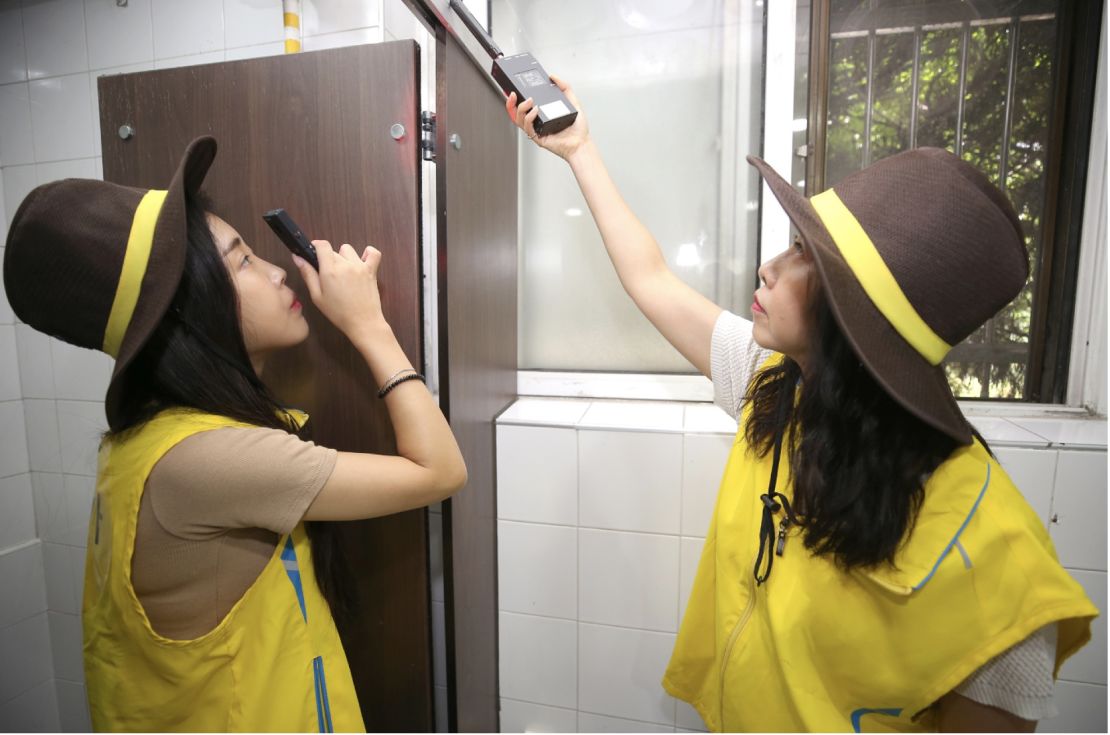
Stopping the spread
In Seoul’s swanky business district of Gangnam, Lee Ji-soo sits at her computer all day scrubbing the internet of photos and videos published without the subject’s permission.
Hers is a new profession created by the rising frequency and public awareness of illegal filming: the “digital undertaker.”
Once she is alerted to a piece of content – such as spy cam footage, upskirt videos, or sex tapes leaked by ex-partners (also known as revenge porn) – Lee and her team use proprietary software to search for all copies of it online. They then send a letter, or a legal notice if necessary, to website administrators requesting it be taken down.
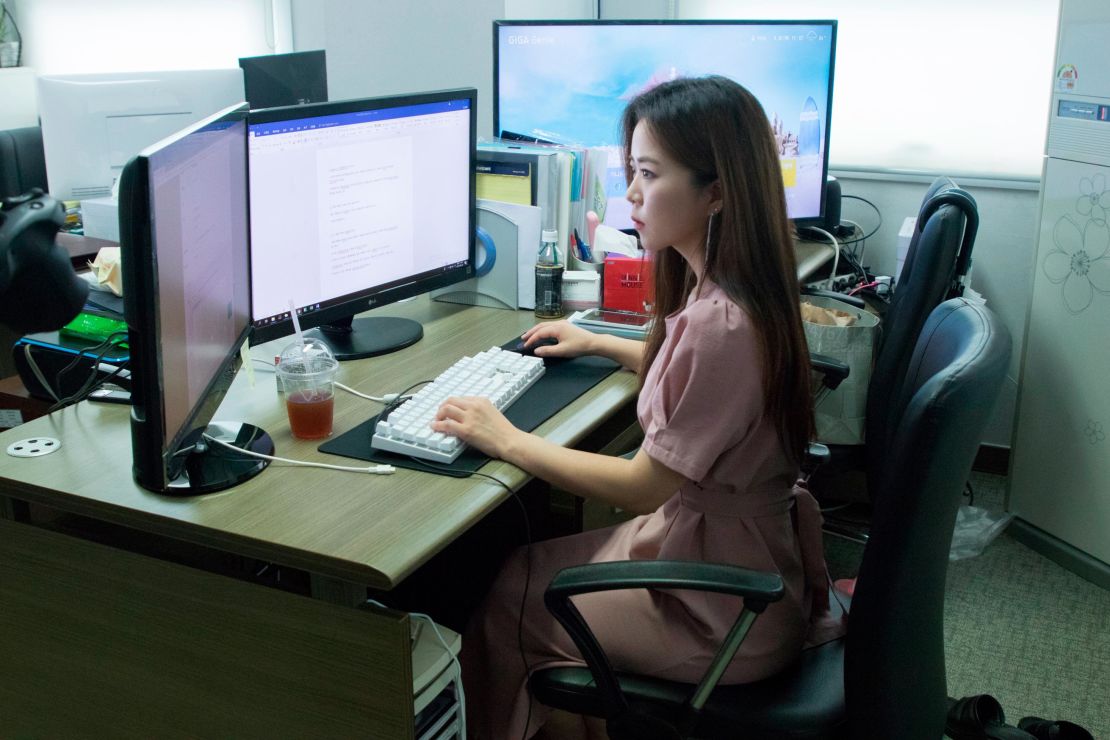
While most websites are willing to remove illegal videos or those shared without permission, Lee said there is a “golden window” of about 10 days after a video is uploaded during which it can be easily scrubbed from the internet. After that it gets more and more difficult, as copies spread to other websites and servers outside Korea.
How fast such videos spread is especially problematic for victims of hidden camera pornography, most of whom are completely unaware they have been recorded and may not become so until months or even years after the video is first uploaded. The speed of transmission is increased by forums and websites dedicated to sharing illegal upskirt videos and revenge porn, many of which have proven difficult to stamp out.
Lee said her company had seen a spike in searches for “digital undertakers” and requests for help as the issue has received more attention in South Korea.
“The most common things that the clients are saying – and they are quite heartbreaking – are ‘I want to die’ or ‘I cannot leave my house.’ Especially the victims of spy cam or illegally taken videos say that when they encounter people on the street, they feel like they would be recognized,” she said.
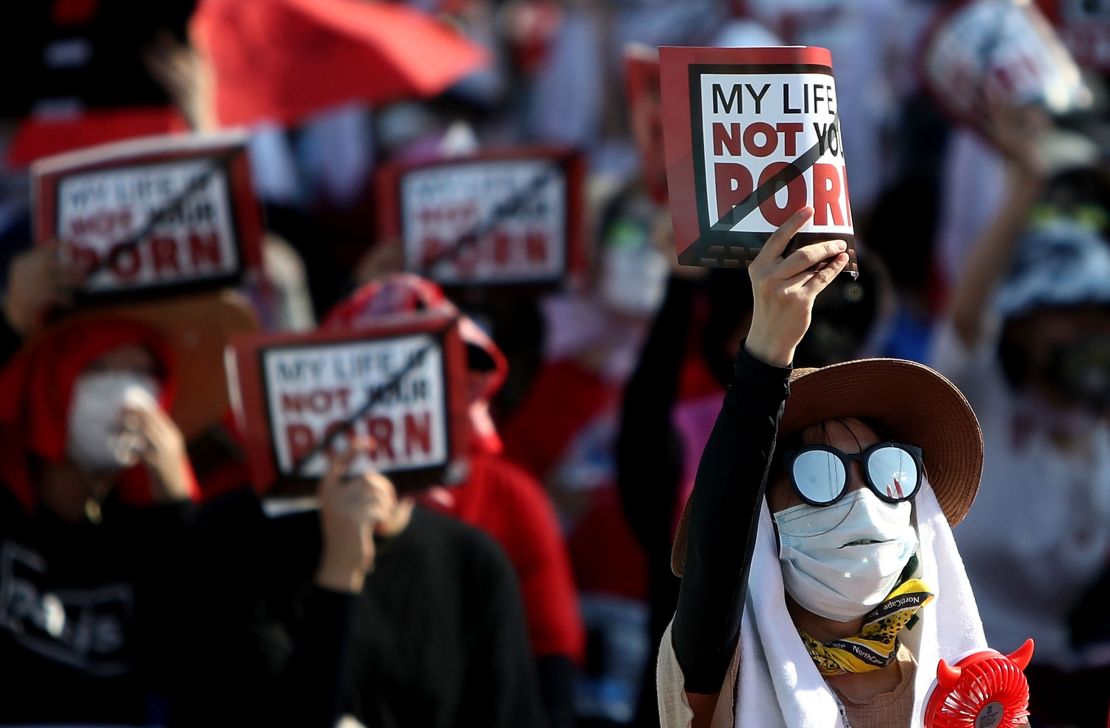
Asked how women can defend themselves from being a victim of this type of crime, Lee was quick to point out they are not remotely at fault for appearing in these videos.
“In a way, these people were just walking on the street when a rock had unexpectedly landed on them,” she said. “So I cannot tell these people to change their behavior and I shouldn’t either.”
Earlier this year, the government began offering similar services to Lee’s company. The Digital Sex Crimes Victim Support Center provides consultation and removal services, and officials said that within the first 50 days of operation it helped 500 victims remove more than 2,200 videos online. It also provides victims legal support to file criminal charges and takedown notices.
The government has also said it will provide $4.5 million in funds to local authorities to increase patrols of toilets and changing rooms to search for spy cameras.
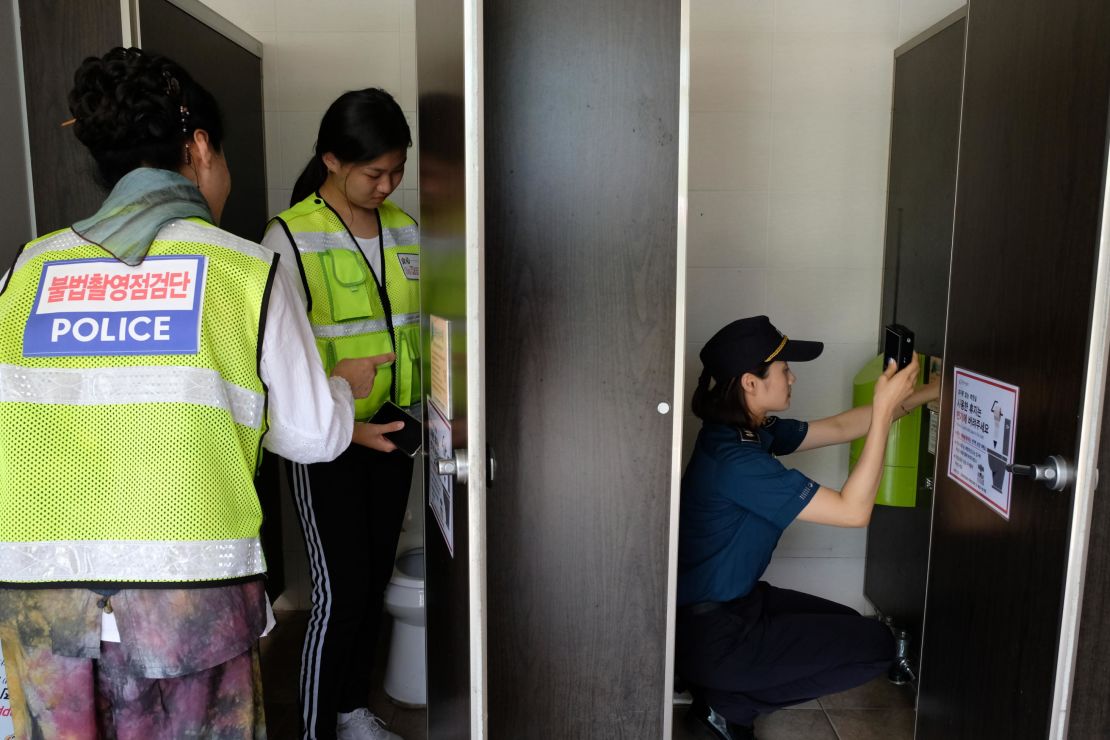
Justice denied
While the authorities have been keen to be seen to take action, spurred by the mass protests in downtown Seoul, Choi said the biggest frustration in her case came from her experience with the police.
Unlike in most instances of illegal filming, the man spying on Choi was actually spotted in the act and the police called. But Choi learned that he was only briefly interrogated and later released without charge. His house was not searched for a full week after the incident, during which time Choi suspected he may have destroyed evidence of other illegal filming.
She blamed the police for not taking the matter seriously, and said “if this is how the law works here then the law needs to change.”
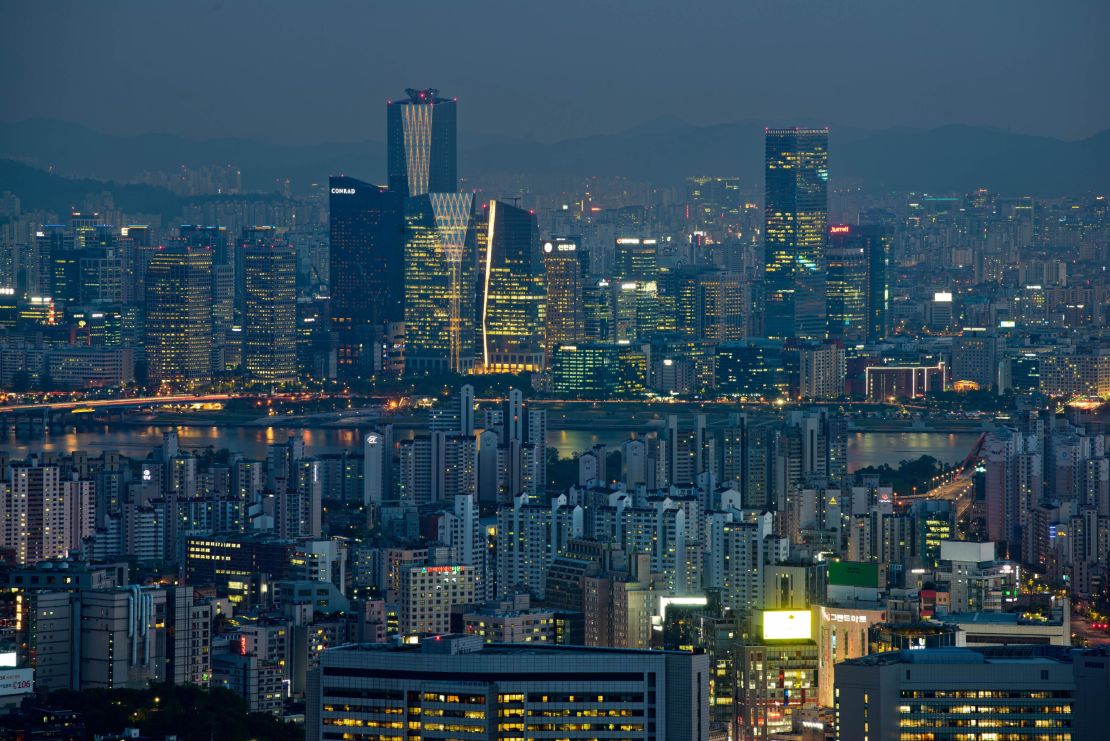
Responding to a request for comment, police told CNN officers made the decision not to arrest the perpetrator after he willingly accompanied them to the police station and surrendered his camera and memory card. They said the delay in checking his home was due to a wait to process a search warrant.
Choi’s suspicions about official attitudes towards illegal filming are supported by the data however. While the current law states that those caught illegally taking or distributing videos can be sentenced to up to five years in prison, only about 5% of convictions result in jail time, and most perpetrators receive fines or suspended sentences, according to a study by the Korean Women Lawyers Association.
There was outrage in August when, after months of protests by women calling for stricter sentencing of the mostly male perpetrators a woman was jailed for illegally photographing a naked man during a life drawing session.
Police also attracted widespread criticism after they released – and subsequently withdrew – a public information campaign depicting the perpetrators of illegal filming as mischievous boys and encouraging the public to take selfies with cut-outs of the childishly dressed mascots.
Last week, lawmaker Kim Young-ho of the ruling Democratic Party proposed changes to the law to impose harsher sentences on the illegal filming of sexual acts, including upskirt videos.
“When an illegal video spreads, it robs a person and ruins their life. Though it’s a grave crime, the law and the punishment had not been strict,” he told CNN.
While the bill is expected to pass this year, Kim warned that the law still needs to be tweaked further.
“If the victim is clothed, there is no legal ground for punishment. So in order to protect the privacy, we proposed the bill that seeks to punish the act of filming without permission even if the subject had been clothed,” he said.
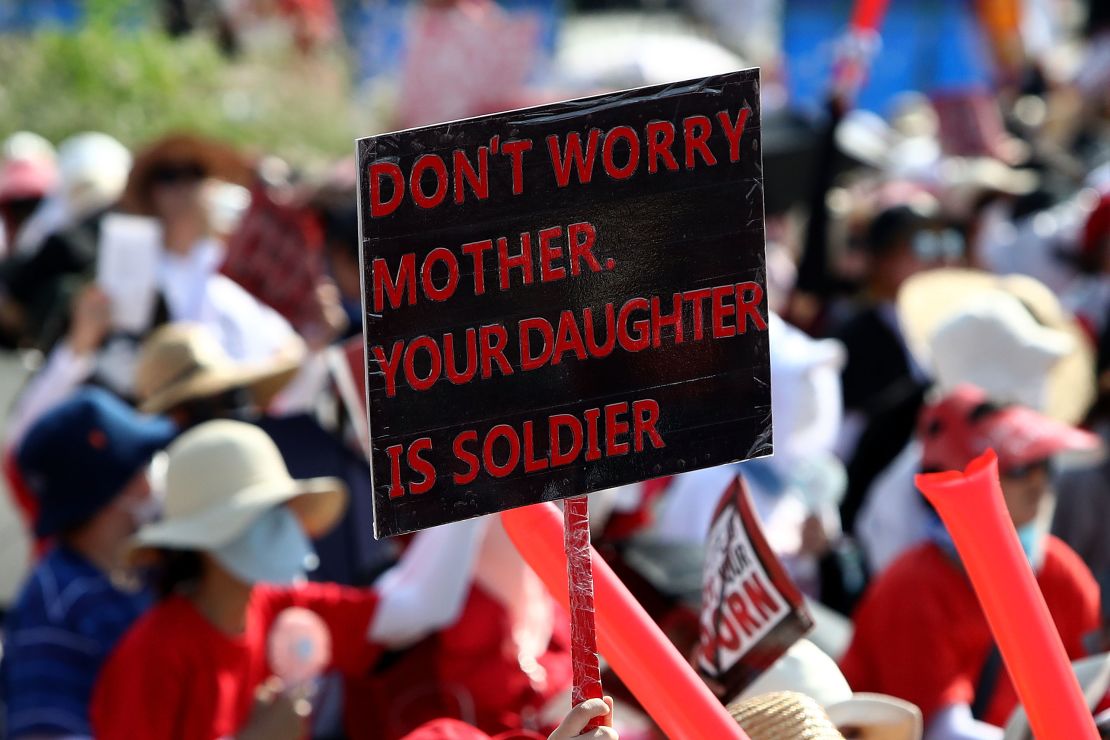
The ability to impose stricter punishments does not necessarily mean courts and prosecutors will take advantage of this, however. Beyond the law, Choi said general attitudes within South Korean society need to change, especially among men, many of whom she felt still do not take illegal filming seriously.
For her, the experience has dramatically changed her outlook and assessment of the country she lives in.
“You can never feel comfortable in your own body if you’re a woman here,” she said. “That’s how I started feeling. Just because I’m born as a woman, people objectify me. People objectify my body, even when I’m in the most private place.”
CNN’s James Griffiths, Ella Ha, Jenni Kim and Stella Ko contributed reporting.





